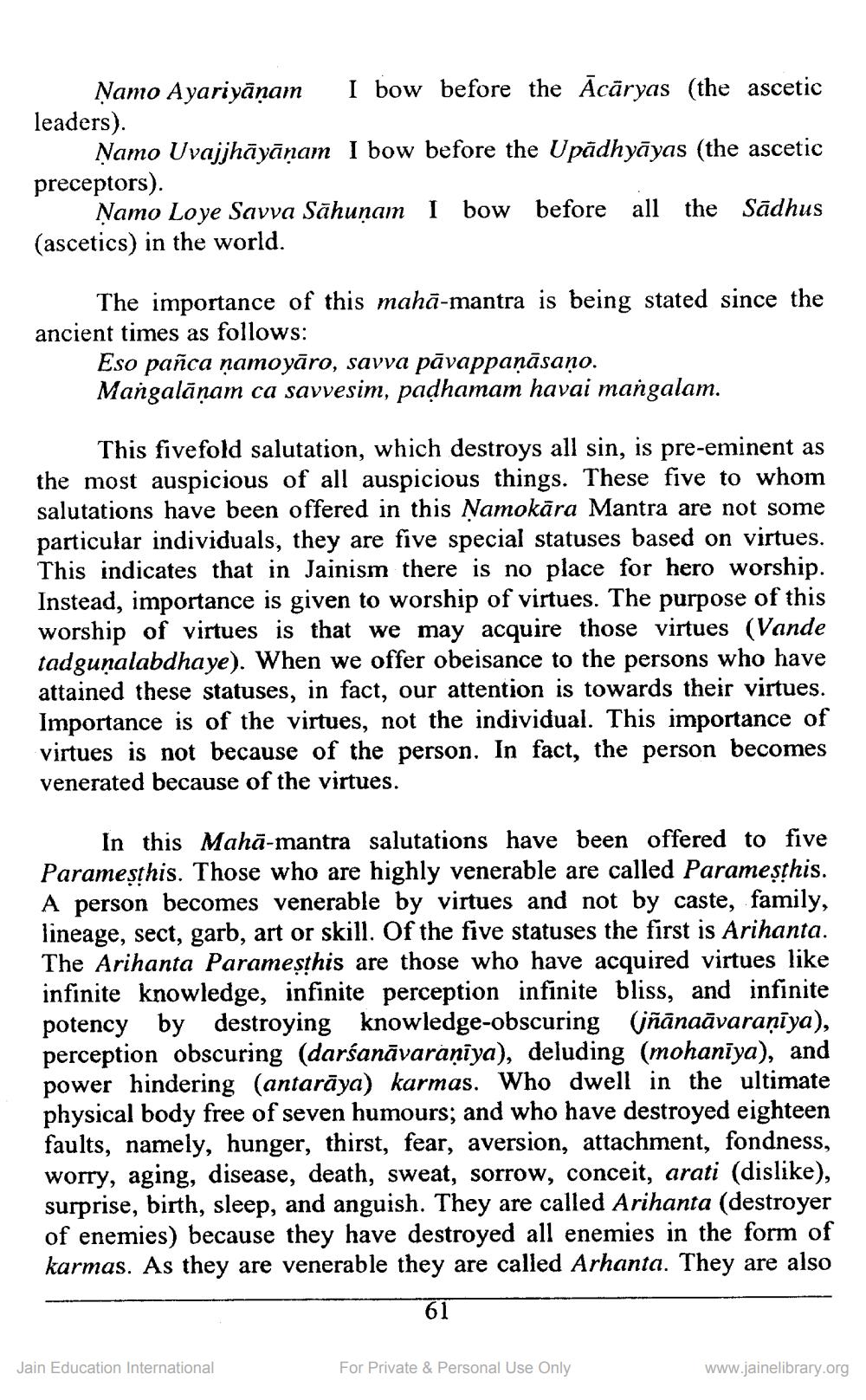________________
Namo Ayariyaṇam I bow before the Acaryas (the ascetic
leaders).
Namo Uvajjhāyāṇam I bow before the Upadhyāyas (the ascetic preceptors).
Namo Loye Savva Sahuṇam I bow before all the Sadhus (ascetics) in the world.
The importance of this maha-mantra is being stated since the ancient times as follows:
Eso pañca namoyāro, savva pāvappaṇāsaṇo. Mangalāṇam ca savvesim, padhamam havai mangalam.
This fivefold salutation, which destroys all sin, is pre-eminent as the most auspicious of all auspicious things. These five to whom salutations have been offered in this Ṇamokāra Mantra are not some particular individuals, they are five special statuses based on virtues. This indicates that in Jainism there is no place for hero worship. Instead, importance is given to worship of virtues. The purpose of this worship of virtues is that we may acquire those virtues (Vande tadguṇalabdhaye). When we offer obeisance to the persons who have attained these statuses, in fact, our attention is towards their virtues. Importance is of the virtues, not the individual. This importance of virtues is not because of the person. In fact, the person becomes venerated because of the virtues.
In this Mahā-mantra salutations have been offered to five Parameṣthis. Those who are highly venerable are called Parameṣṭhis. A person becomes venerable by virtues and not by caste, family, lineage, sect, garb, art or skill. Of the five statuses the first is Arihanta. The Arihanta Parameṣthis are those who have acquired virtues like infinite knowledge, infinite perception infinite bliss, and infinite potency by destroying knowledge-obscuring (jñānaāvaraṇīya), perception obscuring (darśanavaraṇīya), deluding (mohaniya), and power hindering (antarāya) karmas. Who dwell in the ultimate physical body free of seven humours; and who have destroyed eighteen faults, namely, hunger, thirst, fear, aversion, attachment, fondness, worry, aging, disease, death, sweat, sorrow, conceit, arati (dislike), surprise, birth, sleep, and anguish. They are called Arihanta (destroyer of enemies) because they have destroyed all enemies in the form of karmas. As they are venerable they are called Arhanta. They are also
61
Jain Education International
For Private & Personal Use Only
www.jainelibrary.org




